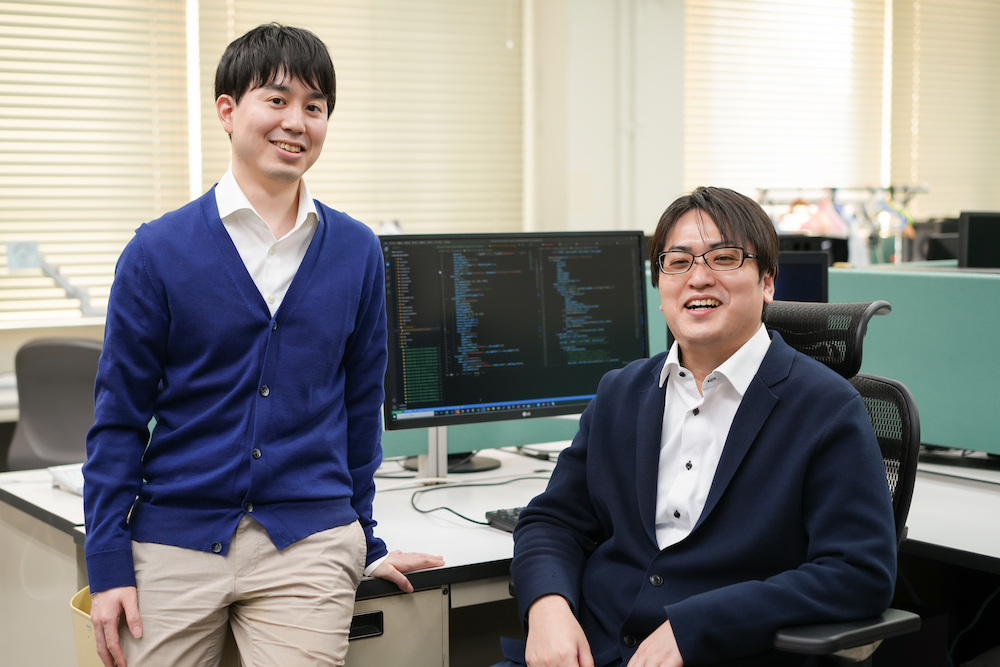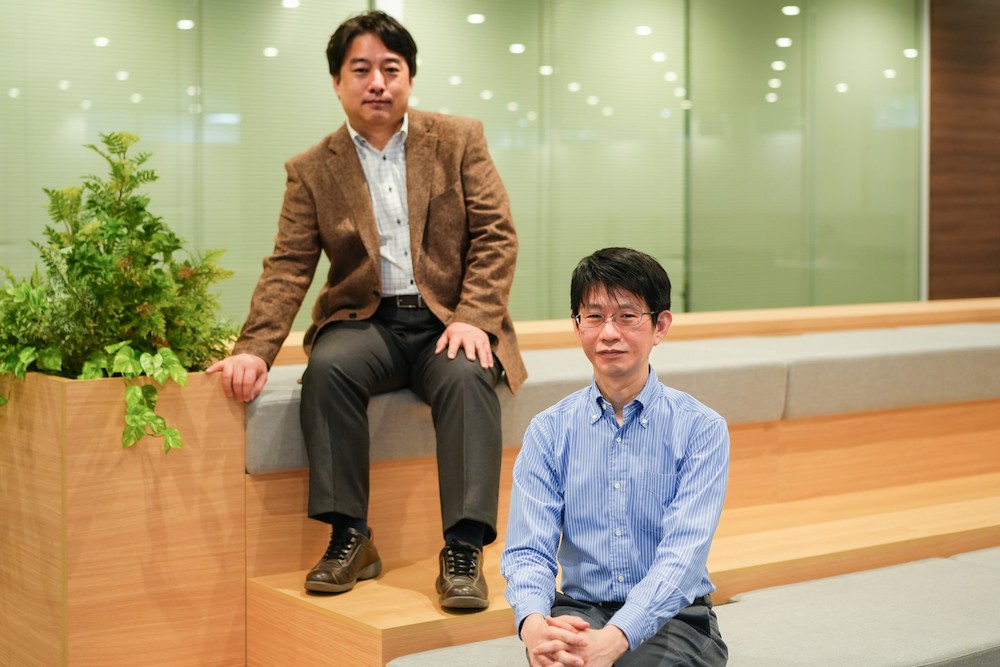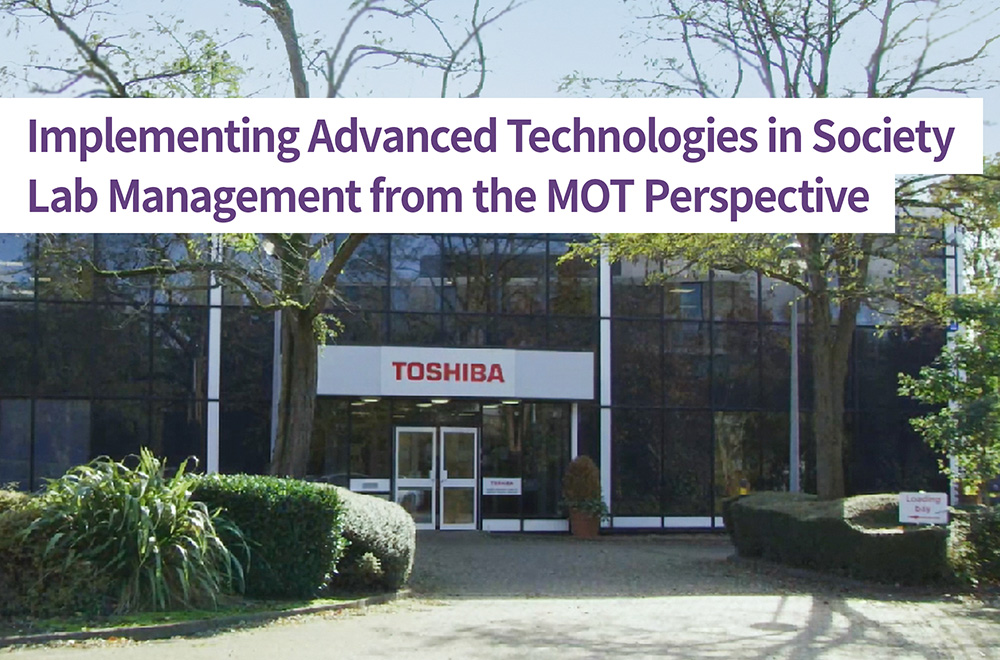AI Coordinators Hold the Key to Introducing AI, Part 1 -Introducing a Group of AI Specialists that Matches Needs with Seeds
2022/11/16 Toshiba Clip Team
- AI innovations is too fast for implementation in society to keep up.
- Coordinators are the key to implementing ever more complex and sophisticated AI technology.
- The introduction of AI will continue to polarize businesses. What distinguishes the companies coming out on top?
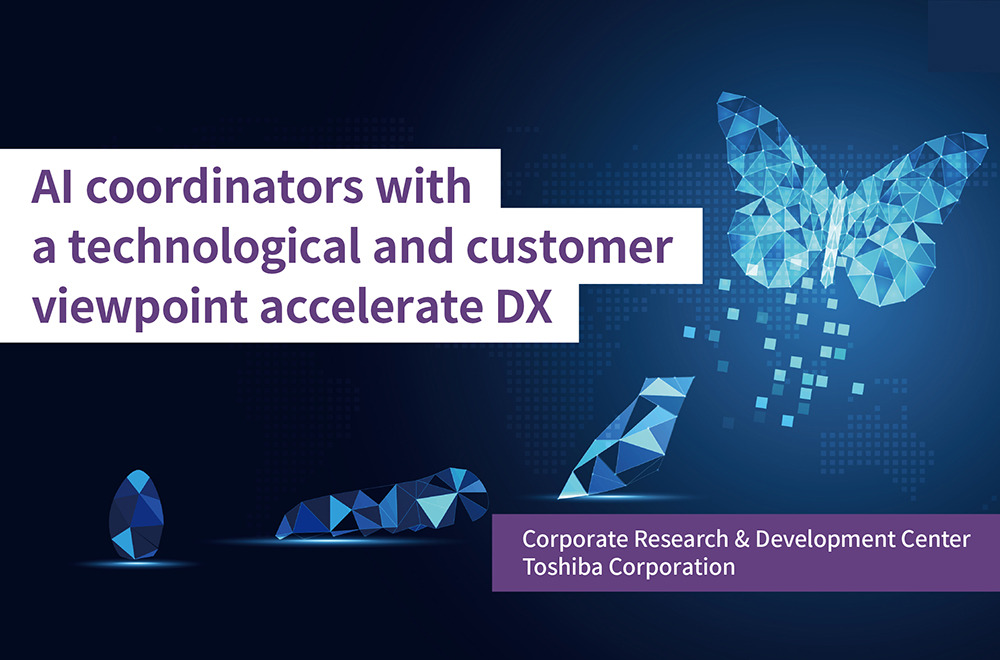
In 2016, an important event occurred in the history of AI. AlphaGo, an AI software program that plays the board game Go, trounced the world champion in a landslide victory. This news of AI’s progress made a strong impression on people around the world. AI has also been incorporated naturally into our lives, becoming indispensable for things like image and voice recognition and machine translation.
New AI technologies have been introduced one after another, and AI surpassing the performance of older deep learning models has been released in fields such as image recognition, natural language processing, and automatic image generation. However, the DX White Paper 2021* cited challenges in introducing AI, including the shortage of AI professionals, the lack of AI use-case precedents, and the unknown effectiveness of introducing AI. Many companies therefore have concerns about AI investment. In fact, according to PwC Japan’s “AI Predictions 2022,” while 13% of Japanese businesses have introduced AI extensively, most have stopped at introducing it partially, for some tasks, and 24% of companies have not introduced AI at all.
*A report published by Japan’s Information-technology Promotion Agency (IPA), consolidating elements of human resources, technology, and strategy.
Commercializing cutting-edge AI technology requires both customer and technological perspectives, and AI coordinators control the success of these efforts. Uncertainties in codification of AI governance, in areas such as AI’s legal liability and AI-induced bias, have been mentioned as new risks in introducing AI.
DX White Paper 2021 also looked at the state of development of the IT environment for data analysis, including AI, and fewer than 15% of Japanese companies answered that they have established such an environment. Along with the lack of professionals and precedents, this creates a significant bottleneck. Carrying out AI projects and advancing DX, efficiently developing AI and building an operational environment, as well as continuing to adopt the latest advances in steadily progressing AI, are all crucial.
In response to this issue, Toshiba set up the Advanced Intelligent Systems Technology Center in fiscal year 2020, in order to shorten the cycle leading to societal implementation of AI. It has four departments, and one of them, the AI Application Dept., has the role of AI coordinator. An AI coordinator understands the substance and essence of the highest technologies, and promotes their match with customer issues and business needs. But what actions does this group of AI experts take, exactly? Senior Manager Kosuke Haruki, who heads the department let us in on their secrets.
What does it mean to be an expert group that coordinates matches between customer issues and cutting-edge AI technology?
The role of the Advanced Intelligent Systems Technology Center is to apply leading-edge AI technology to industry and accelerate joint development of DX with customers. Its activities cover a wide range: AI use in things like design and production; development of new products and services that incorporate AI; and helping customers use AI. The Center’s functions are: (1) promote AI application; (2) develop practical AI technology; (3) develop core AI technology; and (4) develop edge AI technology. To put it simply, (1) in order to apply AI at business sites, (2) develop problem-solving AI to (3) build a foundation for developing and using AI, and (4) create a basis for developing edge AI. It’s an organization that brings together specialists to achieve early societal implementation of AI technology.

The functional structure of Toshiba’s Advanced Intelligent Systems Technology Center
“AI Application Dept. people are coordinators who mediate between customers facing issues and researchers developing cutting-edge AI. They propose AI technology, which is rapidly becoming more sophisticated and complex, that is an appropriate fit for customer issues,” says Haruki as he describes the function of this group of professionals.
“To successfully lead AI projects that need to be implemented in a short time, it’s first necessary to design the best match between customer issues and AI technology, while keeping in mind the customer’s circumstances and appropriate cutting-edge AI. Ascertaining the value created for each customer after applying AI and building a structure that leads to results is another kind of success.
“The AI Application Dept. has members responsible for both designing the best match with AI technology and building a structure that leads to success. They have diverse backgrounds, including people who have been involved in AI basic and practical research and people with experience in planning, developing, and applying software solutions.
“The application of an expert technical perspective to customer issues generates accurate, fast results. We use this strength to work every day at solving problems and creating value through AI implementation.” (Haruki)
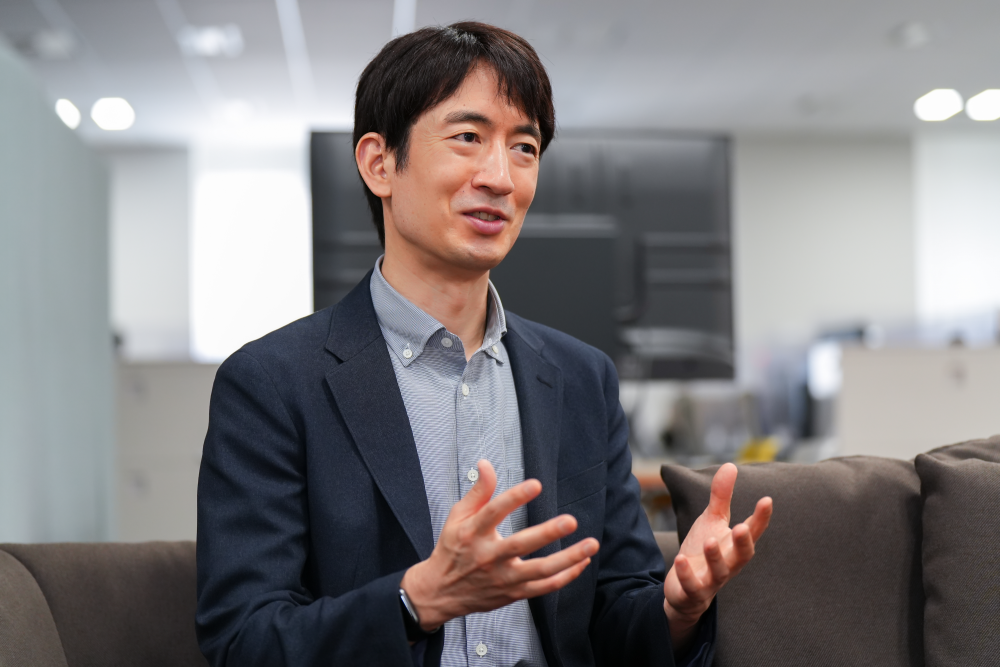
Kosuke Haruki, Senior Manager, AI Application Dept., Advanced Intelligent Systems Technology Center, Corporate Research & Development Center, Toshiba Corporation
Companies that reap AI introduction’s great benefits and companies that are left behind
Companies that are making progress in introducing AI are distinguished by starting small. First, they introduce AI partially, verifying it by making management decisions based on data. Meanwhile, companies that do not make progress in introducing AI are currently left behind because they do not enjoy its benefits. This is also where Haruki and his coordinators come in:
“We talk with customers to determine whether the match between the customer’s issue and the technology is effective. Specifically, we verify the match using customer data to quickly determine whether they have a good usage setting. In that sense, the AI Application Dept. is a group with a strong business viewpoint. We make suggestions, including for collecting data, by discussing with customers how introducing AI will change KPIs.
“In the initial stages of introducing AI, we often tell customers what they can do with cutting-edge AI. The usability of AI and its peripheral systems vary depending on the user. We confirm customer needs, like whether the people onsite are particular about how things will look—the user interface—and push development forward. We also consult on things like, “You need data labeled with this level of granularity,” or “You need this sensor to collect that data.””
In other words, coordinators propose lab-developed AI technology according to customer issues. They also contribute to promoting the introduction of AI through activities that open paths for AI use. This kind of coordination is made possible by the leading research and the abundant AI development and implementation experience Toshiba has accumulated. This can expedite AI deployment, through cross-sectional AI projects, including data acquisition methods and peripheral software, that optimize value.
Haruki explained more: “Systems don’t work solely through AI but are composed of a variety of elements, including peripheral software. The malfunctioning of even one cog in the machine can significantly damage usability. Regarding this, another important role of the AI Application Department is to coordinate AI introduction from the customer perspective, the technological perspective, and by taking a broader perspective that incorporates both of those.”
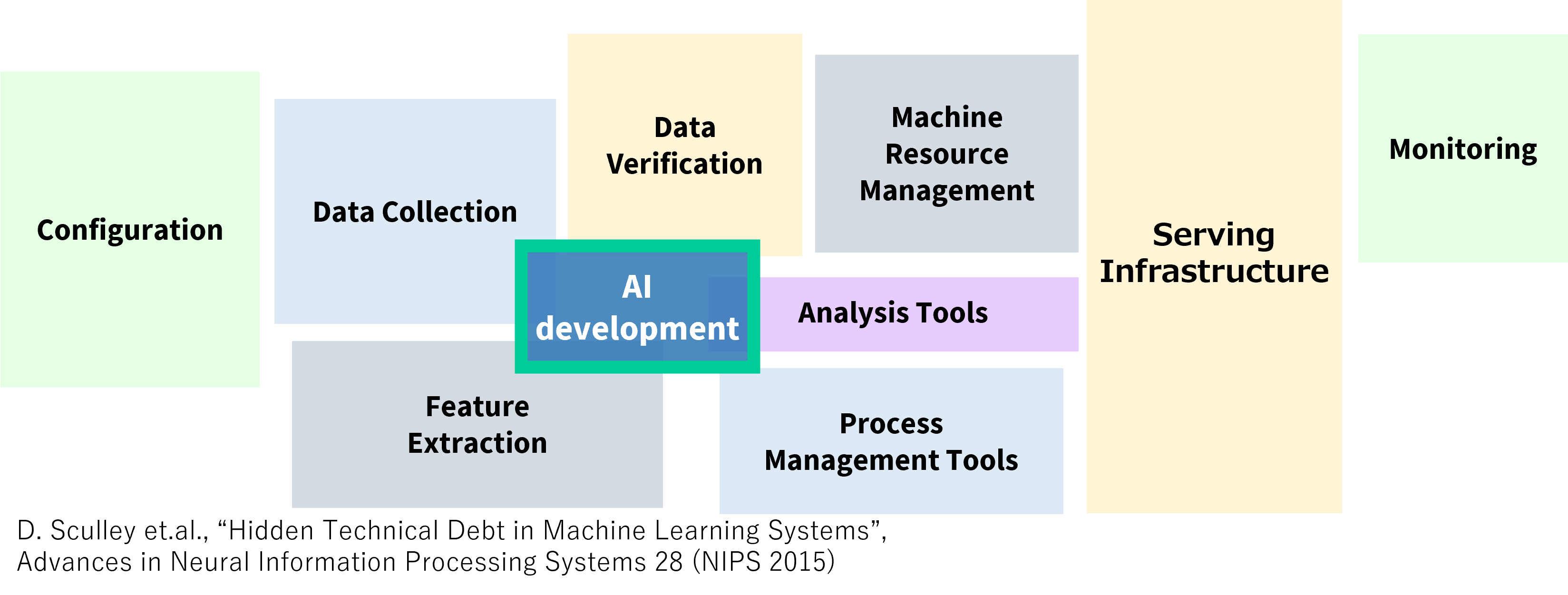
Cross-sectional structural design and mechanism creation, including AI development, is important.
Evangelists promoting AI introduction
Looking at how companies in the United States are advancing AI introduction, Haruki’ says, “The big difference is that American companies have incorporated AI into their business KPIs.” That is to say, it is important for management to experience for themselves that AI is used in a wide range of operations and that there are significant returns on AI investment. “AI that gets business results pays off. This is the role of the Advanced Systems Technology Center and us at the AI Application Dept.,” adds Haruki.
The department has another role: they are the face of Toshiba’s AI evangelism.
“Can facilities inspection control be done so efficiently?” a customer blurts out in surprise during a proposal. Top AI engineers enlighten the customer about AI, including how to use it: “With this AI, you could achieve this sort of results.” They are the crème de la crème among professionals, with full knowledge of the cutting-edge of AI. Naturally, they can also develop AI themselves, that means their ability to persuade customers is more convincing. Haruki enthuses that this evangelism, “will build the foundation for promoting AI application in companies.”
Readers will understand if they think of new products. It does not occur to customers to want a product unless they know it exists. Similarly, companies cannot commission AI unless they have been told what technology exists in the first place, what it can do, and how it can achieve KPIs.
“To grasp customer needs we exchange technology with people in charge in Toshiba Group’s business divisions. We integrate the environment where the customer is introducing AI, their strategies, and previous solutions delivered by Toshiba, assigning priorities to suggest the best AI. We deepen customers’ understanding of AI and present on how to improve their return on investment, putting ourselves completely in the customer’s shoes.” (Haruki)
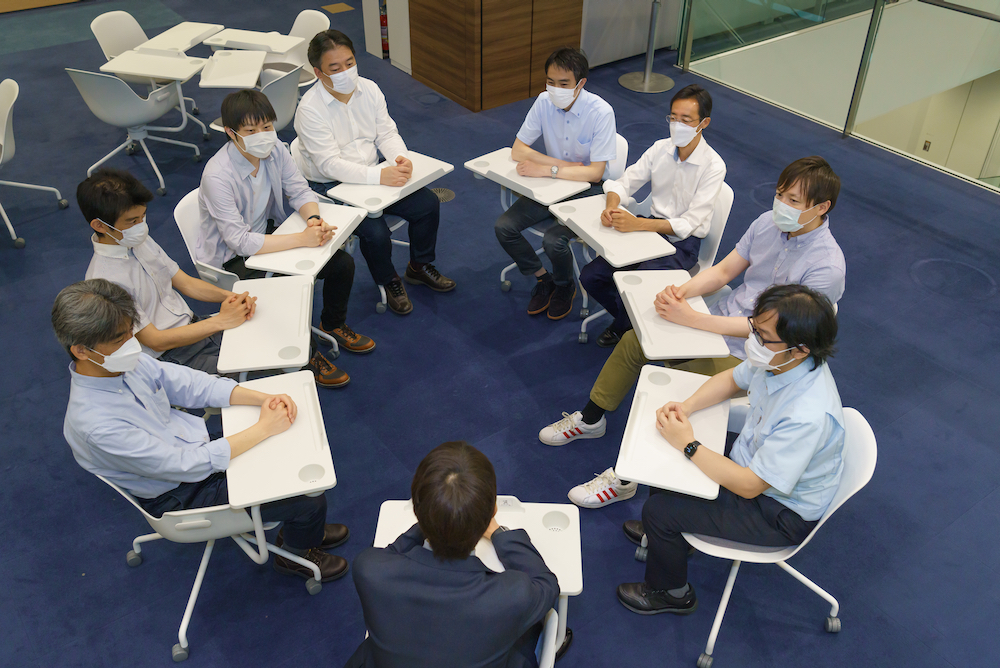
All the evangelists promoting AI introduction
Using expertise cultivated by Toshiba for AI quality evaluation technology
The role of the AI Application Dept. does not stop at AI coordination and promotion. The department has developed AI quality evaluation technology to develop and operate high-quality AI and work toward compliance with legislation such as Europe’s proposal for a regulatory framework on artificial intelligence.
“Toshiba has accumulated plenty of AI operational experience,” says Haruki. “Our researchers all have the ability to perfect things like image recognition and speech synthesis AI. However, it’s hard to have sufficient knowledge of quality evaluation to respond if there are doubts about the quality basis when AI is applied or updated.
“Our strength when that happens is AI quality evaluation technology, another one of our roles. The AI Application Dept. will continue to maintain then raise the level of Toshiba’s AI by functioning across relevant departments and demonstrating quality quantitatively.”
Speaking of AI quality, quantitative evaluation of technology is extremely difficult. The AI Application Dept. therefore checks quality from multiple perspectives, such as by inspecting the amount and variations of the data AI learns from. For example, an AI model that learned from supervised data with variations in the amounts cannot be called a high-quality AI model. When Toshiba’s evangelists share information that includes explanations of evaluation items with customers and researchers, it enables them to provide advice on AI quality.
The department’s members draw on wide-ranging expertise gained from development work in Toshiba’s businesses. This knowledge is their “secret sauce” when it comes to selecting items to focus on and evaluate, and makes Toshiba’s quality-quantifying technology one of its competitive advantages. As mentioned at the beginning of this article, the risk of introducing AI has been in codifying AI governance, such as legal liability and AI-induced bias. Coordination, campaigning, and quality evaluation by the AI Application Dept. are precisely what respond to these risks. The follow-up to this article will describe the state of AI human resources training, quality evaluation in introducing AI, and the return on investment, as well as present a map to the future Toshiba imagines for AI.
![]()
Related Links
*This section contains links to websites operated by companies and organizations other than Toshiba Corporation.
Toshiba AI | Toshiba





